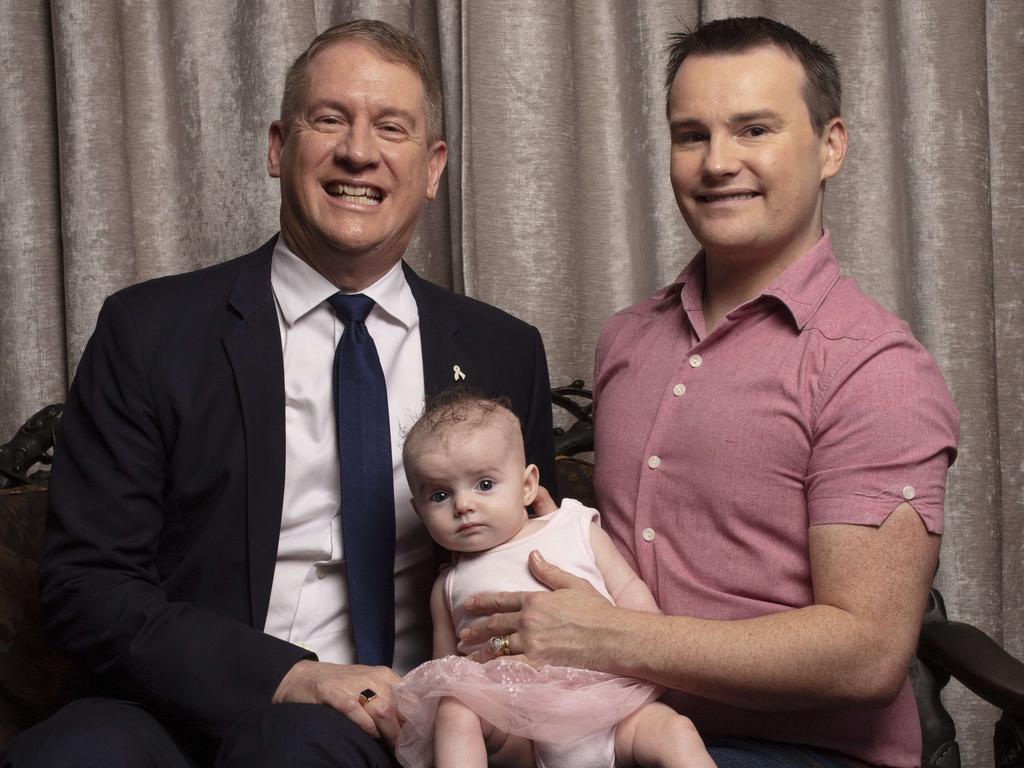Caught in a Greek tragedy: Aussie bubs held in detention amid surrogacy scandal
Desperate Australian parents are unable to take their babies home or even hold them after police raided a world-renowned surrogacy clinic in Crete and took the newborns into detention.
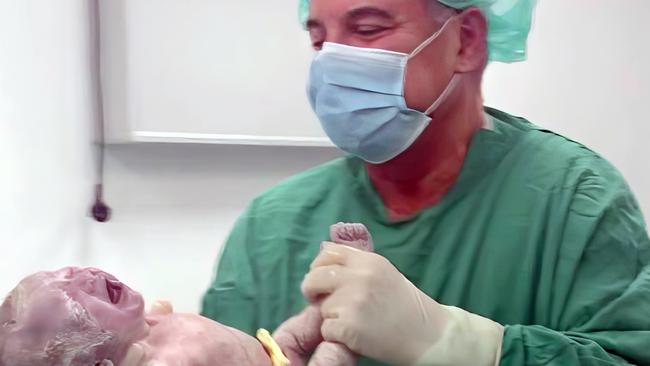
Desperate Australian parents are unable to take their babies home or even hold them after Greek police raided a world-renowned surrogacy clinic in Crete and took the newborns into detention.
The Australian understands about eight newborns – including several Australian babies – are being held by the Greek government in a high-security section of a Crete hospital.
The surrogacy clinic, the Mediterranean Fertility Institute, which The Australian understands has been used by hundreds of parents internationally to successfully deliver healthy babies, was raided by federal police over accusations of human trafficking and fraud.
The Australian ambassador to Greece, Alison Duncan, has described this as a “grave situation” in several letters to the Greek government, while a surrogacy organisation says more Australian families will be implicated as each day passes and more babies are born to heavily pregnant surrogate women.
Greek police allege the clinic, founded more than 30 years ago by obstetrician Ioannis Giakoumakis, is a criminal organisation that exploited 169 foreign vulnerable women, forcing them to be egg donors or surrogates, and defrauded patients through sham embryo transfers and engaging in illegal adoptions.
Members of the clinic’s medical team have been arrested and imprisoned, accused of child trafficking, while police continue their investigation.
Several Australian and European parents who used the centre have arrived in Crete but have not had access to their children.
A spokesman for the Australian Department of Foreign Affairs and Trade said it was “continuing to provide consular assistance and engage actively with Greek authorities in support of a small number of families with surrogacy arrangements in Greece. We understand that this is a distressing time for impacted families.”
Ms Duncan has personally written two letters to the Greek government to ask for the Australian parents to be able to have visiting rights and to obtain information on the hospital care plans for their babies.
“I understand the Greek authorities are undertaking a full and comprehensive investigation into the Mediterranean Fertility Institute and its operations,” Ms Duncan wrote.

“I wish to express my respect for Greek legal processes.
“The request for visitation acknowledges that it is in the best interests of the baby to have love and attention.
“I hope for a speedy resolution of this issue for all the Australian families who have been unwittingly caught up in this grave situation.”
Australian couples to whom The Australian spoke said when they arrived in Crete, happily awaiting the arrival of their baby, all seemed normal at the fertility institute. It was bustling with doctors, pregnant women and excited parents anticipating their babies.
Within days, all the employees had been imprisoned and the clinic had been shut down.
When their biological babies were born, they were not able to hold them, or even see a photograph. Instead, the newborns were seized from the surrogate mothers and whisked away.
It’s understood the babies are being held under tight security at a neonatal ward in Crete’s Chania Hospital.
Letters have been sent to the hospital, the consulate and Greek authorities to plead for compassionate allowance for the parents to be able to see their newly born children.
The hospital is bound by a court order denying access.
“We are seeking reasonable daily visitation rights to our newborn children starting today,” the letter states.
“Please empathise with our situation and the distress we are experiencing.”
They wrote that theirs was a “plea based on fundamental human rights” and that they were “asking for humane consideration”.
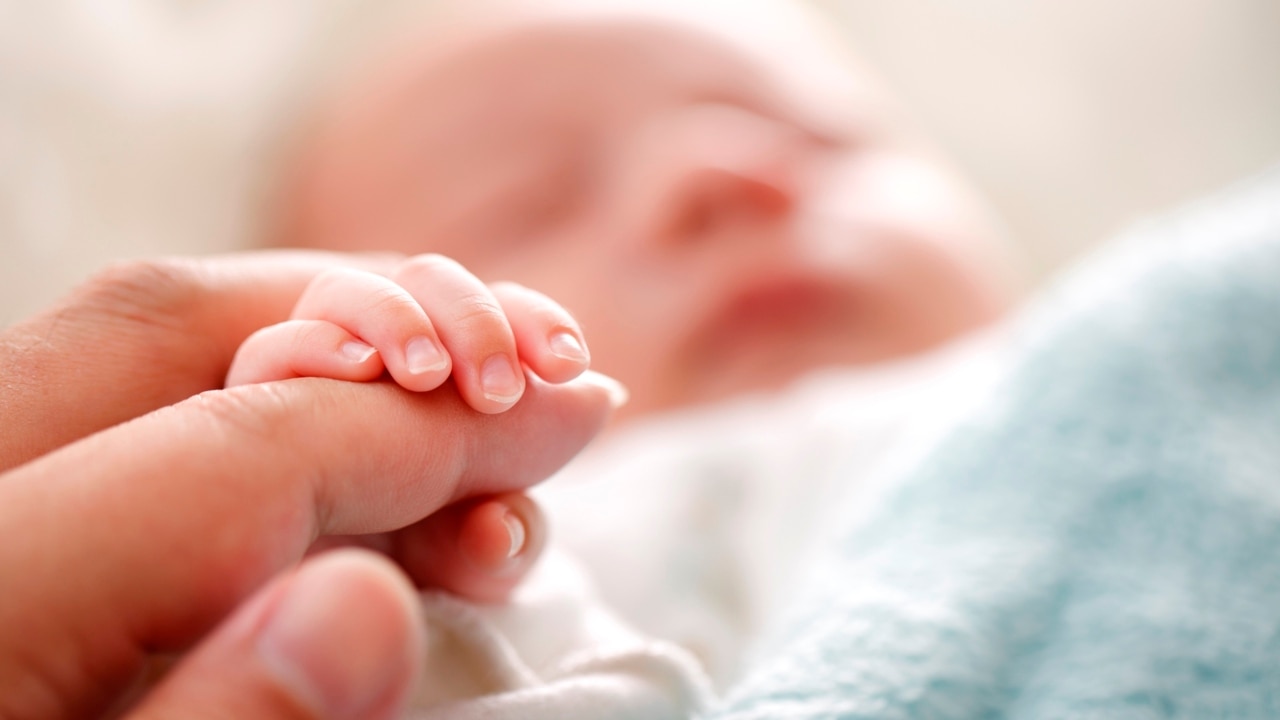
The parents need to undergo a DNA test to prove their link to their baby, but the results are slow; in the meantime, they’re missing irreplaceable time with their newborn babies.
Even if the DNA results are positive, the district attorney’s office needs to grant the parents permission to take their babies home and out of the country.
Immigration lawyer Roman Deauna said there were issues of DNA confirmation and then citizenship to be worked through.
“I refuse to call it a Greek tragedy … but it is,” he told The Australian. “To be denied access to your baby – can you imagine the cruelty of it?
“They (the parents) need to prove that their case is not one of those alleged to have involved the trafficking of surrogates.”
The Australian families are among dozens of parents internationally in the same position – fighting to see their babies or get access to their embryos from the clinic that’s now shut down.
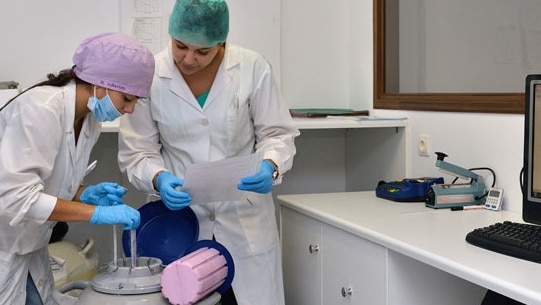
Sam Everingham, the global director of Growing Families, a not-for-profit organisation that supports families with surrogacy, said Mediterranean Fertility Institute was the largest provider of surrogacy in Greece – and Australians comprised half of their clientele.
He said Greece had about 60 Australian cases enrolled in surrogacy programs a year, 25 Australian surrogacy births a year, another 30 going through donor IVF and another 80 Australian couples with embryos stored there.
“They would have been doing 300 cases a year. It would be approximately 150 Australians affected who either have embryos there or births on the way,” Mr Everingham said.
“I’ve got women in tears on the phone every day saying ‘I just don’t know what to do. It’s been really tough, it’s awful.’
“There are a lot of other pending Australian parents who have embryos stuck in the clinic or surrogates who have fled back to Georgia or who are down $30,000 or $60,000 in this.”
He said there were couples now selling their homes to be able to afford to start over again somewhere else.
Centre for Infertility Solutions director Nicholas Lolatgis had been recommending Australian couples dealing with infertility to use the Mediterranean Fertility Institute.
He said he has been in the industry for 40 years and Greece had the best donor egg program in Europe.
“That’s why I use them,” Mr Lolatgis said.
“The doctors that were involved with Mediterranean Fertility Institute broke the law in the eyes of the Greek government so they have put a hold on using any embryos created by that clinic.
“They’re claiming that maybe the fertility institute, when they created the embryos, didn’t use the parents’ sperm and used other sperm … now I think that’s unfounded but nevertheless these are the accusations, so for parents who are there to pick up their babies from the surrogates, they may have to have DNA tests performed.”
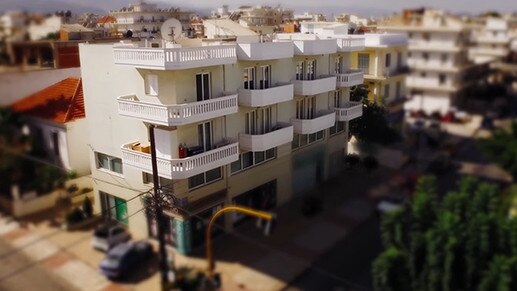
Mr Lolatgis has written a letter to say while the families are awaiting their DNA test results, the parents need to be able to have access to the babies to bond with them.
“Isolating (a mother) from her baby is not in the best interest of their baby. It’s not fair,” he said.
A source familiar with the situation told The Australian that in some instances, investigators had been unable to match some newborns to donor parents because of poor record keeping.
They said surrogates were rarely introduced to donor parents and files were kept separate and sometimes misplaced.
The source said prior to the Greek police raid, it was possible some donor parents may have been given children that were not genetically theirs.
There are also allegations that some surrogate mothers contributed their own eggs and were claiming parental rights over the newborns.
The Australian contacted the clinic owners, the Greek Ministry for Health, the District Attorney’s office, local police in Crete and the Chanian hospital for comment. None has responded.
The Greek embassy in Canberra was also approached for comment.
It said ambassador Georges Papacostas would not be able to address the issue until Monday.




